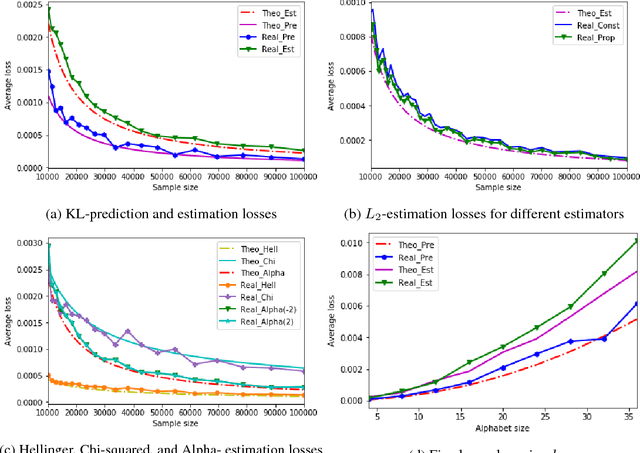On Learning Markov Chains
Paper and Code
Oct 28, 2018
The problem of estimating an unknown discrete distribution from its samples is a fundamental tenet of statistical learning. Over the past decade, it attracted significant research effort and has been solved for a variety of divergence measures. Surprisingly, an equally important problem, estimating an unknown Markov chain from its samples, is still far from understood. We consider two problems related to the min-max risk (expected loss) of estimating an unknown $k$-state Markov chain from its $n$ sequential samples: predicting the conditional distribution of the next sample with respect to the KL-divergence, and estimating the transition matrix with respect to a natural loss induced by KL or a more general $f$-divergence measure. For the first measure, we determine the min-max prediction risk to within a linear factor in the alphabet size, showing it is $\Omega(k\log\log n\ / n)$ and $\mathcal{O}(k^2\log\log n\ / n)$. For the second, if the transition probabilities can be arbitrarily small, then only trivial uniform risk upper bounds can be derived. We therefore consider transition probabilities that are bounded away from zero, and resolve the problem for essentially all sufficiently smooth $f$-divergences, including KL-, $L_2$-, Chi-squared, Hellinger, and Alpha-divergences.
 Add to Chrome
Add to Chrome Add to Firefox
Add to Firefox Add to Edge
Add to Edge